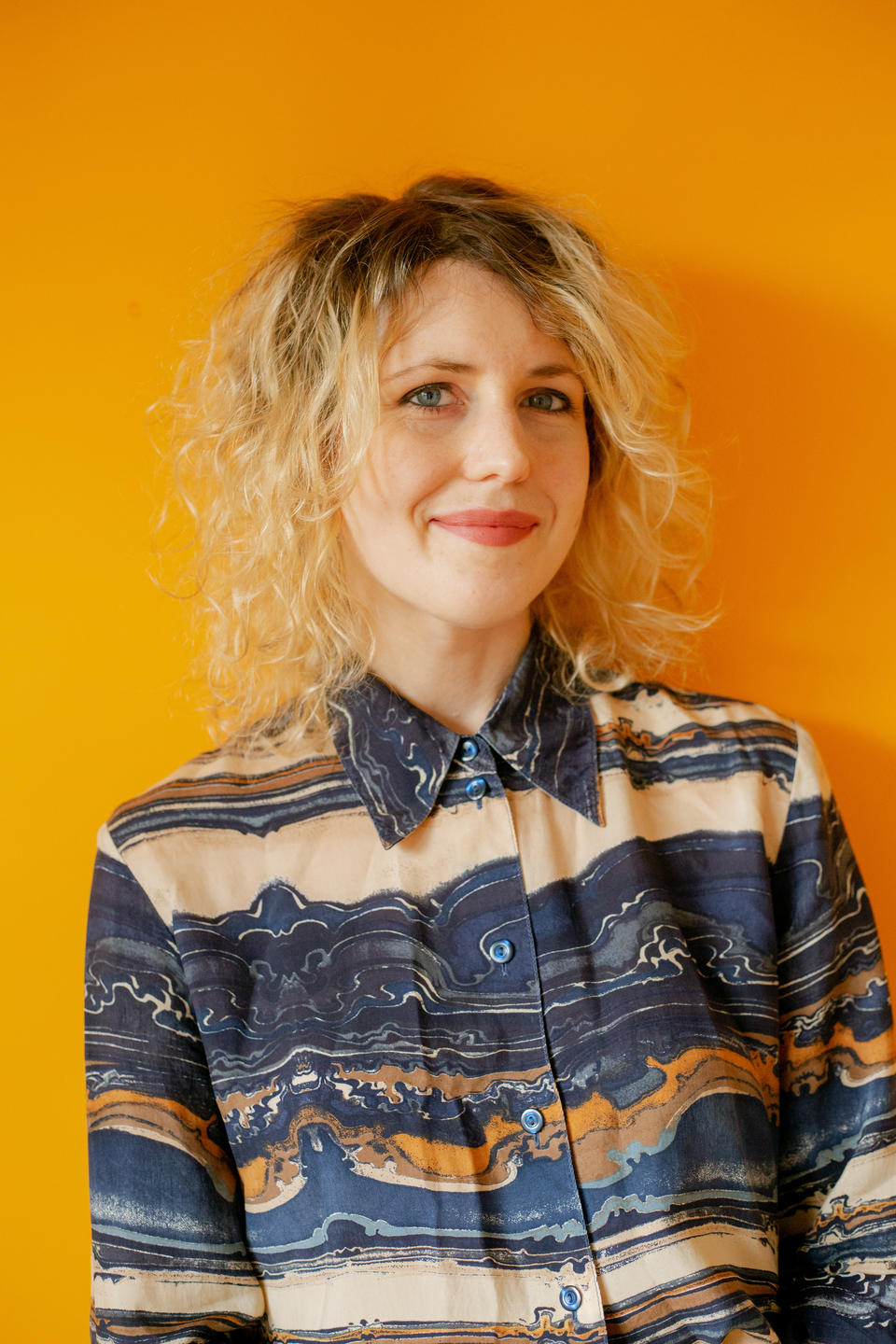
Sunday Poetry with Sarah Burgoyne
Welcome back to Sunday Poetry! Today we have Sarah Burgoyne discussing "THE PURPLING NIGHT IS THE TREES HEAVY WITH DARKING" from her CHB debut, Because the Sun.
THE PURPLING NIGHT IS THE TREES HEAVY WITH DARKING
is my shelving of its book there on my shelf
as the dog calls in the field, thick with the sky’s bidding
perch me back on my table, with my newing
my precious newing, aloof moon, leave me be
how i got so comfortable with
a sleepy passing car to marry my fearing
riding round the gazebo my nighting
is the waves of sound in the distance, my fonding
of fear, o communicator, it hangs like a wet heat, my limping
dog on my table, so comfortable with it, my blooding
filling my body with heat, wristing
night’s folds in the pages, the trees electricking
with sundown, a stone building fortifies against the shimmering
which is the unworried night sky pestling me to sugar, my
anointing
complete, the benches are waiting for it, not differenting my
sorrowed lungs, empty of performance, and the clouding
pinking
bluing lighting leaving
I love breaking the “rules” of writing. And I am also glad to know these “rules” because I truly believe they can make a person a better writer. We hear them all the time, in writing classes, in community workshops, in statements of poetics: Show, don’t tell… Write what you know… Avoid adverbs…Don’t use gerunds… They march around in our heads as we write and slam their rulers on our desks at a sloppy, vague description, at a “sing-songy” quality that could have been avoided if we cut the gerunds.
A gerund is a nounified verb, like “swimming is my passion.” The name “gerund” makes me think of a “gerbil” and “ground” or “Gerry” but who Gerry was in Medieval Amsterdam, the great Heer Gerund… In other words, I love it. I also love it when words leap across boundaries whether on purpose or by accident. I once wrote an entire essay, “The Castle Does (Not) Appear,” based on a sentence scrawled by a rushed college student as I was grading her final paper: “What has happened will always remain happened.”
I love errors because errors are accidentally profound.
When a verb can become a noun, the joyful rumpusing of language-making begins.
Gerund actually comes from the Latin gerundum which means "to be carried out," which is related to gerere "to bear, carry,” connecting it to the word “gest”: a tale of adventure. Like I said, we are advised not to use gerunds because they add an annoying quality of sound to our work. (I think there’s a bias toward using stalwart, hefty, monosyllabic Germanic words in English writing, especially in poetry). But for “The Purpling Night” I was interested in what the gerund can carry out—what it can bear, especially in large quantities.
Not all the -ing words in my poem are gerunds. Some of them are just verbs, but sonically they have the same effect: a sort of whirling. I did a lot of my writing in the summer of 2018 in a gazebo in a park near my house. It was right in the centre of the park, so things were constantly moving around me—like I was in the calm eye of a storm. Storm is not the right metaphor though, unless you consider the shifting hues of dusk, the hyperactivity of picnicking children, the playfulness of dogs meeting other dogs, the tidal noise of moving cars, and the gorgeousness of the brilliant pink sky just as the sun sets, a type of storm. I suppose the storm in the poem is what is happening internally, at the level of the body—the eye of the storm is only a temporary calm, after all, and not a place to linger.
But there is an anointing that follows lingering too long in an outlawed zone—like the performance artist whose show is over when she faints from blood loss or exhaustion. People clap. But some might consider that not to be “art.”
What I’m trying to say is when a boundary is drawn, we think it delineates a space within, but it also necessarily delineates a space without and that space—now forbidden—becomes the most arduous, wild, potent space of all.

